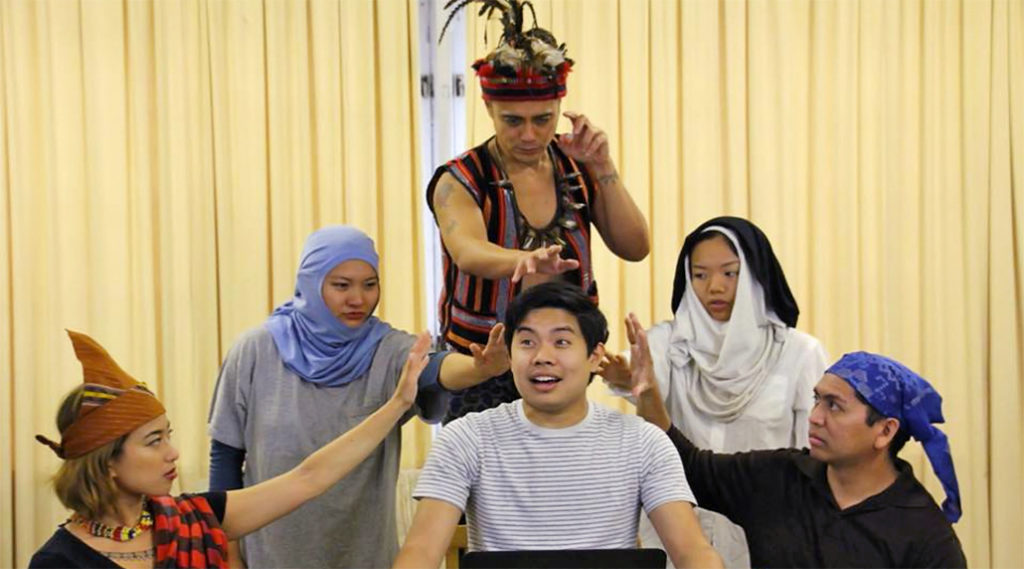I am writing in response to Yoly Tubalinal’s article “You will Know Them by Their Fruits” (April 1-15, 2019 issue). I have been following the developments on the Rizal Center case from a distance as I’ve been traveling back and forth between Chicago and New York for the past 3 years. Among my regular sources of community news are the Filam Megascene and FB. In particular, I’m really baffled by the allegations hurled against Jerry Clarito and “his group” for being racists. From my sociological understanding of racism, the discriminatory actions must come from a racial group that has power and privilege directed against another racial group that is a minority or underprivileged.
While I do not know exactly who is referred to as “Jerry’s group”, I can confidently speak about the integrity of Jerry and the senior-citizen members of FAGPAC (the Grandparents’ association) as well as the staff and volunteers of AFIRE. I have worked with many of them since the early 1980’s. Together, we’ve advocated for human and civil rights, such as the passage of Filipino Veterans Equity Bill and more recently, the Illinois Domestic Workers Bill of Rights. We have also worked with many others for a more just, humane and inclusive society, especially for the most vulnerable members not only of the Filipino-American community but of other communities with whom we share the same values and collective interests. It seems to me that Ms. Lehman glossed over the hard work, labor of love, personal sacrifices and the long history of community service made by Jerry alongside many of these FAGPAC and AFIRE members. And for her to insinuate that Jerry and “his group” are racists, I think, is misleading at best. Worse, it is divisive and alienating.
What really shocks me is learning that the Chicago Police had to intervene in an internal organizational issue where concerned community members, many of whom are displaced members who consider the Rizal Center their “home”, held a peaceful mobilization outside Rizal Center to highlight the alleged unjust and undemocratic maneuvers of Ms. Lehman and the “board” that she represents. My father was a founding member of FAGPAC and I’m certain that if he were alive today, he would have been there on that day too with his peers to demand accountability and transparency from the “powers-that-be” at the Rizal Center. But even more appalling is learning that Ms. Lehman has reportedly been using Rizal Center as her residence rent-free for at least two years. Now that definitely would not have sat well with my late accountant-father who used to collect membership dues and donations for Center activities from every member of FAGPAC, most of whom are on public assistance, according to whatever each can afford. And each member willingly and gladly obliged because it is the right thing to do. They have deemed the Rizal Center as a vital community space, a “home away from home”, and thus should be used for the greater collective good.
I am quite embarrassed that this case has gone on for over two years and I’m just speaking up now. As my parents would always say, “Justice delayed is justice denied”. But I know in my heart that my parents will forgive me, my siblings and our children for not taking up “this cause” much sooner as we have our own lives and personal struggles. But for us to stay on the sidelines and not get engaged now will be a huge disappointment for them to say the least. Thus, I would like to ask Jerry, Ms. Lehman and the groups that they represent this question – how can we, concerned community members, be engaged and participate in shaping the direction of the Rizal Center and help transform it so that it can truly serve the interests of the greater community through processes that are inclusive, participatory and democratic?
While there are many forces that tend to pull our communities apart, I strongly believe that it is up to us to pull ourselves together so that we can work for and with each other rather than against each other. After all, our parents, grandparents, and many others before us have made great sacrifices and paved the way so that we can enjoy the benefits of their struggles. We have much to learn from them and be grateful for. Why can’t we honor them by working collectively with integrity and openness and picking up from where they left off? Like them, hopefully we too can be known and remembered by our good fruits.
Angela Mascarenas
Co-Founder & Executive Director, CIRCA-Pintig




 ShareThis
ShareThis